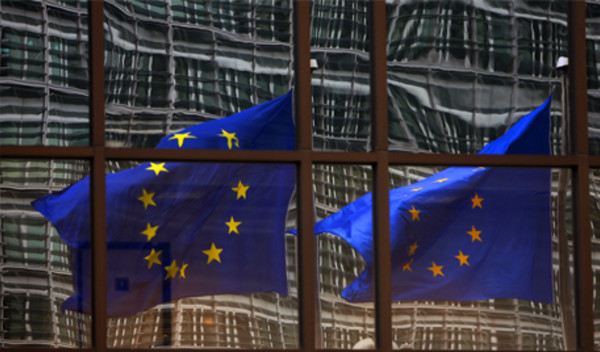

The bell has been rung and the early manoeuvering has begun in arguably the biggest constitutional battle thrown up by last week’s general election result.
A Tory majority means there is now no equivocation, the British people will vote on whether we remain as a member state of the European Union within the next two-and-a-half years. If you believe press reports this week, it could be much sooner.
Marquess of Queensbury rules on political pugilism will now see two concurrent fights taking place: between the Conservative government and its European peers for sufficient concessions to secure the case for continuity; and alongside this the more critical propaganda battle over how the prospective reform package is interpreted back home.
Both are already underway. Nary a day will now pass without some headline or another in the nationals giving the view of some senior European figure or other, variously signalling an open mind or a clenched fist over British demands.
This has been the context for the discussions in recent days over the quota system being proposed to deal with the wave of migrants seeking to cross the Mediterranean. Invoking an incendiary - and potentially internecine - 1997 opt out may be seen as an early ‘low blow’.
More on that later. First it is worth stating that this is a debate of huge importance for Britain as a whole, but especially financial services professionals and your investor clients.
You’ll hear a lot more about this and will have to contend with reams of contradictory data in the months to come. But to nail my colours to the mast: I believe being within the European Union is a major reason for London’s success as a financial centre; it contributes significantly to the success of British companies; and is therefore critical to ongoing prosperity.
That is not to say it is not in need of reform, as the other major crisis in southern Europe which could yet see Greece fall ignominiously out of the eurozone shows.
I understand the need for countries to adhere to agreed principles for a single currency to work - in fact, it’s the best case for why the UK dodged a bullet and should never re-consider its decision to persist with the pound. But when doing so is literally killing a country’s economy, it is politically poisonous.
Greece undoubtedly had a profligate pensions system, an infantile tax collection regime and needs to fundamentally rethink its public finances. It is equally plain that the existing timetable for repaying debt and the crippling interest rates are asphyxiating any return to growth.
According to data from Eurostat quoted by the Telegraph, unemployment is running at above 26 per cent; youth employment at 52 per cent (in some areas this can reach 70 per cent), and long-term unemployment at 74 per cent of those out of work. Pensioners may not get paid to ensure repayments to creditors to meet deadlines, and people are being taxed to use cash machines.
Anyone that believes in the collectivism that the EU should represent - and which Germany has benefitted from in the past - would surely agree that some accommodations needed to be made, whether by cutting the outstanding debt, reducing interest or extending maturities.
Instead, the officious troika led by European finance ministers refuses to budge. With no back-up benefactor, my guess is Greece will eventually fold at the eleventh hour and accede to reforms demanded to unlock its latest bailout. The alternative of bankruptcy and euro-exit would see it exiled from financial markets and contending with hyperinflation.
What this shows is how sclerotic Europe is, how inflexible when confronted with the idiosyncratic problems of individual member states. This is a facet of how it is run through a central core of federalising evangelists in the European Commission, who do not have to answer to an electorate.
Problems with the system should not cause a knee-jerk reaction to reject it, however. Britain’s political system is clunky, but it still works fairly effectively - and in any case there is no sense in cutting off your nose to spite your face.
Which brings me back to that quota system. This is not the forum for any in-depth discussion on the issue, but it seems this is an example of Europe getting it right: we simply cannot repatriate all migrants and must not breed resentment with our near neighbours by refusing to take our share.
Moreover, the option of refusing to be part of any European immigration system could revoke the Dublin accord that allows us, according to figures quoted in the Times yesterday, to send 13,000 migrants back to member states they arrived at first.
(There is also a basic lack of humanity on display in the debate, but that is quite another issue.)
Despite all of this, though, the government is playing hard ball. It has to: the rules of the bout require that it guard against any apparent lunge from the EU in terms of decision making, especially when it is relation to immigration.
We can only hope that at least it has the effect of convincing the British people we’re not being bullied by Europe. This might be the key to getting a crucial vote to stay in.
ashley.wassall@ft.com




